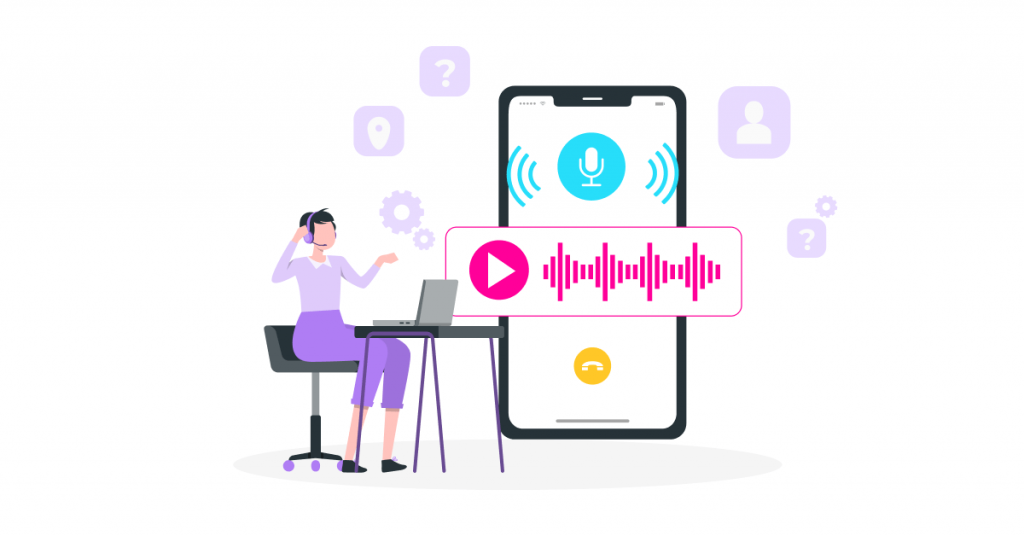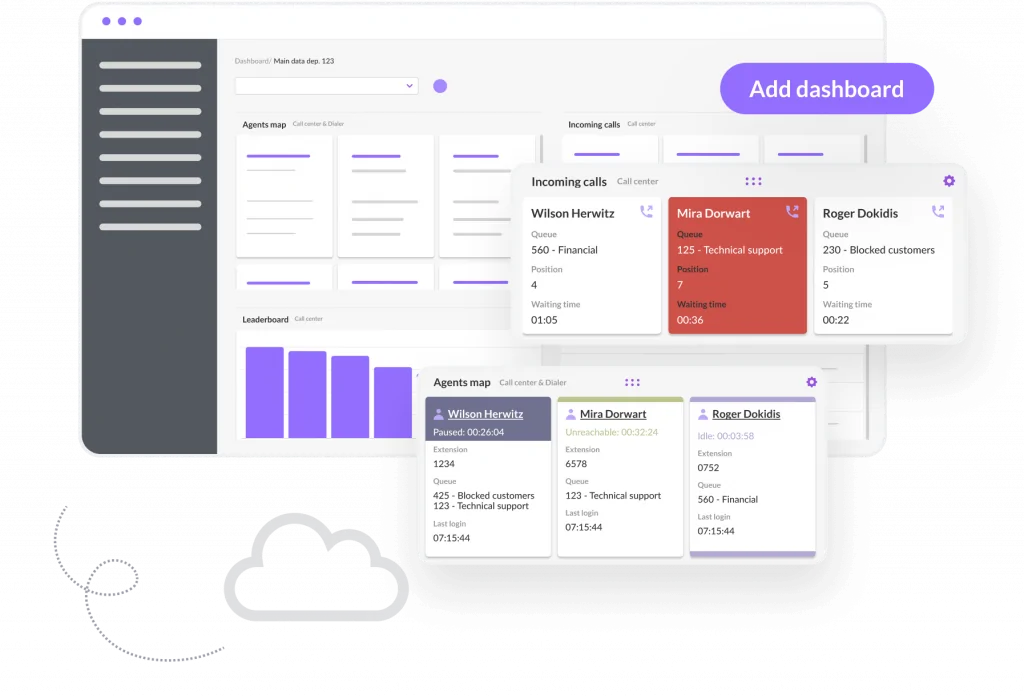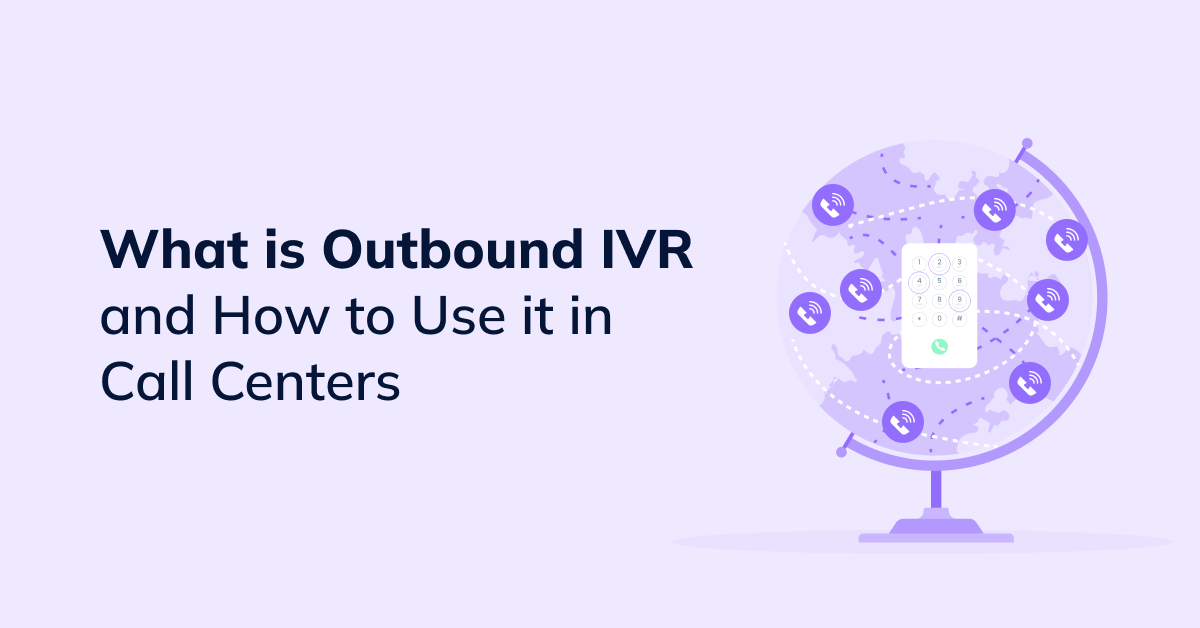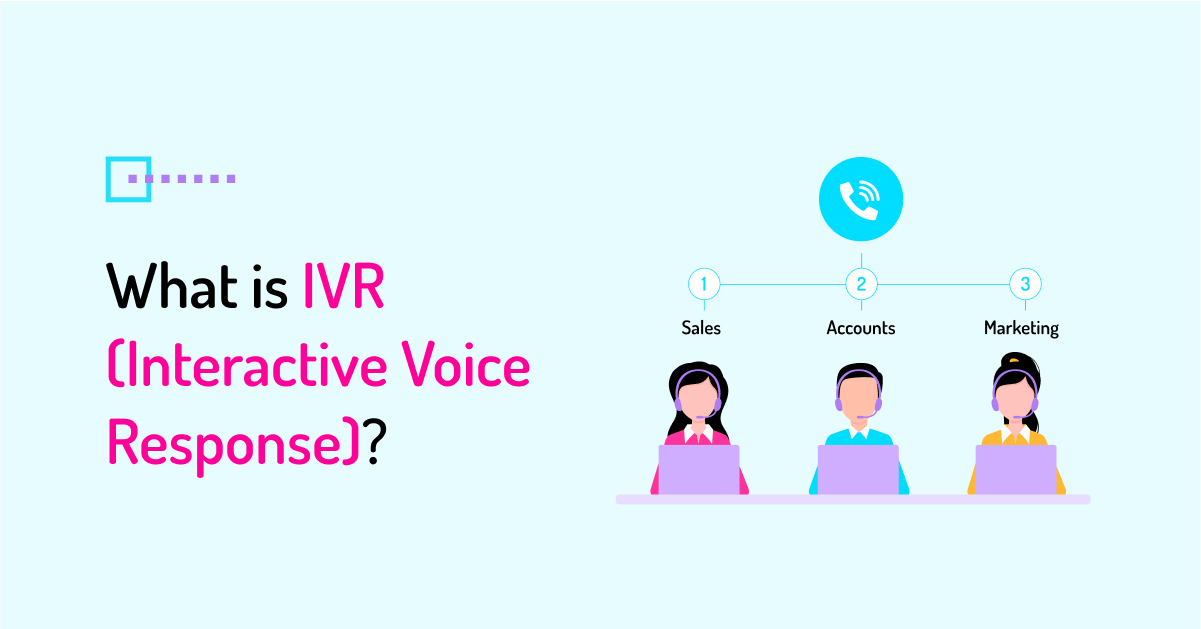Automatic Speech Recognition is a valuable technology that is currently being actively implemented and used in call centers and contact centers for a variety of purposes. ASR helps streamline call center operations, accurately route customer calls, deliver self-service customer support through human-like conversations, maintain compliance, gain valuable insights from voice interactions, and reduce overall customer support costs.
What is ASR?
ASR, or Automatic Speech Recognition, is an AI-powered technology that converts spoken human speech into written text. ASR technology is now used in voice assistants, transcription services, call center software systems, and speech analytics solutions. AI automatic speech recognition solutions provide a wealth of benefits for call centers.
From conversational AI voice bots and self-service IVR systems to real-time call transcription and speech analytics tools – Automatic Speech Recognition technology is applied in various use cases in modern call centers. Many inbound call center software solutions offer AI features that employ ASR technology.
How Does Automatic Speech Recognition Work?
Powered by Artificial Intelligence, an ASR system uses Natural Language Processing (NLP), acoustic and language models, and Machine Learning (ML) technologies to accurately understand and transcribe spoken language into written text, which can then be used for different purposes. Modern sophisticated ASR systems are even capable of understanding jargon, accents, and different speech patterns.
Let’s look at a specific example of how ASR works in Generative AI voice bots to enable human-like conversations and provide self-service support to customers without involving live call center agents. First, a customer initiates a voice interaction through a phone call or a voice-enabled device. Call center speech recognition software uses ASR to transcribe the customer’s spoken words into written text to process and accurately understand the customer’s intent.
Once the voice input is converted into text, an ASR system employs NLP to analyze the transcribed text and extract valuable information from it using special models trained on extensive amounts of data. Based on that, an ASR system pulls together the necessary information and generates a relevant response, which is then converted back into voice format through text-to-speech technology.
Common ASR Applications in Call Centers and ASR Benefits
When it comes to Automatic Speech Recognition, examples of applications of ASR technology within today’s call centers can be found in many call center features and solutions. Below are the most common ones:
Conversational AI voice bots

Along with AI chatbots, AI voice bots are becoming increasingly popular with consumers as they provide a more natural interaction experience and are faster to communicate with. By using the power of ASR, NLP, natural language understanding (NLU), and machine learning technologies, conversational AI voice bots and virtual assistants can automate customer service interactions, allowing you to deliver self-service customer support, which is highly expected by today’s consumers.
Voice bots can provide information, answer common questions, guide customers through processes, facilitate transactions, and resolve issues. The speed and 24/7 availability of voice bots and virtual assistants can help call centers improve customer experience.
Self-service IVR and call routing
With the adoption of ASR, IVR (Interactive Voice Response) systems have become more intelligent. ASR-powered Interactive Voice Response systems can capture information about customer inquiries and better identify customer needs and intentions. IVR self-service menus can help customers perform a wide range of basic tasks, such as requesting information, placing orders, making appointments and reservations, or completing transactions using voice commands. That can ultimately reduce the workload on your agents and improve customer satisfaction.
ASR also facilitates call routing and helps better direct incoming calls to the most appropriate departments, teams, or individual agents based on customer intent, improving your FCR (First Call Resolution) rates and reducing the Average Handle Times.
Voice biometrics
Call center speech recognition solutions can be used in call centers to identify and verify incoming callers through voice biometrics by analyzing the unique characteristics of the caller’s voice, such as tone, pitch, and speech patterns. That not only helps improve security and streamline the caller authentication process but can also dramatically improve the experience for both callers and agents. On top of that, empowering your agents to authenticate customers without having to request additional information from them saves them a great deal of time and effort.
Call transcriptions
Call transcription is another common application of ASR in call centers. ASR can provide real-time transcriptions of customer-agent conversations, eliminating the need for manual transcription. That reduces errors and saves time for your agents. You can then analyze transcribed calls and extract valuable insights that can help you in many different ways.
Firstly, you can monitor the quality of customer interactions, assess agent performance, and see how your team members interact with your customers or prospects to spot knowledge gaps and training opportunities. You can also identify trends, patterns, and customer preferences and make improvements to better meet customer expectations and improve your customer service quality. In addition, call transcriptions can simplify and streamline the after-call work for your agents.
Speech analytics

ASR is being widely used in call center speech analytics software tools. Such solutions allow managers to maintain regulatory compliance by automatically transcribing and analyzing customer calls for adherence to relevant regulations, quality assurance standards, script guidelines, and internal policies. With some speech analytics solutions, you can set up real-time alerts that notify managers if specific keywords and phrases occur in the conversations so you can timely spot compliance violations. That is critically important because non-compliance issues may result in hefty penalties for call centers.
VoiceSpin’s AI Speech Analyzer is an example of speech analytics solutions that harness the power of Automatic Speech Recognition technology. Among other capabilities, it allows you to automatically transcribe inbound and outbound calls and generate post-call summaries of every interaction based on your specific predefined rules. Managers and supervisors can then review these summaries to better assess agent performance and adherence to scripts and guidelines.
Beyond that, VoiceSpin’s Speech Analyzer can track sentiment analysis, which is the process of determining the sentiment of the speaker by analyzing the vocabulary used, pitch variations, intonation, the rate of speech, loudness, the level of stress in a speaker’s voice, and other variables. The sentiment is then given a sentiment score as positive, neutral, or negative. Being able to track customer sentiment during interactions enables you to better gauge customer satisfaction and agent performance.
Automated agent assistance
ASR technology also empowers AI-agent assist solutions. Agent assist tools provide agents with relevant information and real-time recommendations right when they are interacting with customers using a combination of Automatic Speech Recognition, NLP, machine learning, and data analytics.
When an agent speaks to a customer or a prospect, agent assist tools transcribe speech into text and analyze it to offer real-time suggestions on how to best respond to customer requests. That can improve the experience for both agents and customers and reduce the Average Handle Times as agents won’t have to waste time searching for the relevant information manually.
E.g., if a customer calls in about a tech problem they are experiencing with the product, the agent assist tool will identify the product and the problem and automatically pop up a prompt with a troubleshooting guide on the agent screen, enabling the agent to quickly help the customer resolve their issue.
ASR Applications Beyond Call Centers
Beyond call centers, ASR technology is also integrated into our daily lives. Virtual assistants (like Siri, Amazon Alexa, Google Assistant, and Microsoft Cortana), transcription services, dictation software solutions, language learning applications, and in-car speech recognition systems are just a few examples where ASR technology is used across industries. All that accounts for the rapid growth of speech recognition technology solutions, with the global speech and voice recognition market projected to grow from $12.62 billion in 2023 to $59.62 billion by 2030, according to Fortune Business Insights.
Challenges in Building Efficient ASR Models in Call Centers
While using ASR in call centers brings numerous benefits, building an accurate and effective ASR model for call centers does come with certain challenges. Let’s review them:
Diverse dialects, accents, and speech patterns
The diversity of dialects and accents is a key challenge in building a highly efficient ASR model. A call center may be serving customers from different regions, each with its unique dialects and accents. In fact, dialects and accents may dramatically vary not only between different countries but also within the same country. The differences in pronunciation and intonation, which may be additionally influenced by individual speech patterns, make it difficult for ASR systems that are trained on standard language models to accurately recognize these speech variations.
Industry-specific vocabulary and terminology
Call centers may be operating across different industries like healthcare, finance, retail, and others. Naturally, each of these industries has its own specific unique vocabulary, terminology, and jargon. A regular ASR system that wasn’t trained for industry-specific vocabulary may demonstrate lower accuracy when understanding and transcribing voice interactions. To overcome this challenge, extensive industry-specific speech datasets must be used to train an accurate speech recognition model. However, such datasets might be difficult to acquire.
Noisy environments and poor audio quality
Call center agents may be working in noisy environments, which is especially the case with large call centers with hundreds of agents working side by side in a single office space. Background noise may also be coming from the customer’s side. In addition, factors like poor line connection or using low-quality headsets may also negatively impact the audio quality. That may affect the accuracy of ASR systems and potentially lead to transcription errors.
Data security and privacy concerns
Data security and privacy is another concern when it comes to Automatic Speech Recognition. Many large ASR companies use significant amounts of customer data to train their ASR models without explicit permission, which raises certain concerns over customer data privacy. Moreover, continuous data storage in the cloud additionally raises concerns over potential data security breaches, especially considering the fact that this data may include sensitive information.
Limited training data availability
To ensure high levels of accuracy and efficiency, Automatic Speech Recognition systems must be trained on large volumes of speech data. However, it takes a considerable amount of time and resources to obtain a diverse and representative dataset capturing a wide range of client interactions and properly train an ASR system, which makes limited training data availability another major challenge.
The Bottomline
The application of ASR in VoIP call center solutions is vast, truly revolutionizing the way call centers process voice interactions, analyze and leverage voice data, and deliver customer support. By transforming audio data into meaningful information with ASR contact center solutions, you can streamline your call center operations, reduce costs by automating tasks, improve the experience for both customers and agents, monitor agent performance, automate quality assurance, and maintain compliance.

VoiceSpin virtual call center software has been utilizing ASR and other AI-based technologies in its solutions. Book a demo call to learn more about VoiceSpin’s AI call center software capabilities and how they can be used to improve your call center operations.





 +18889082995
+18889082995
 +442036084160
+442036084160
 +97237237006
+97237237006